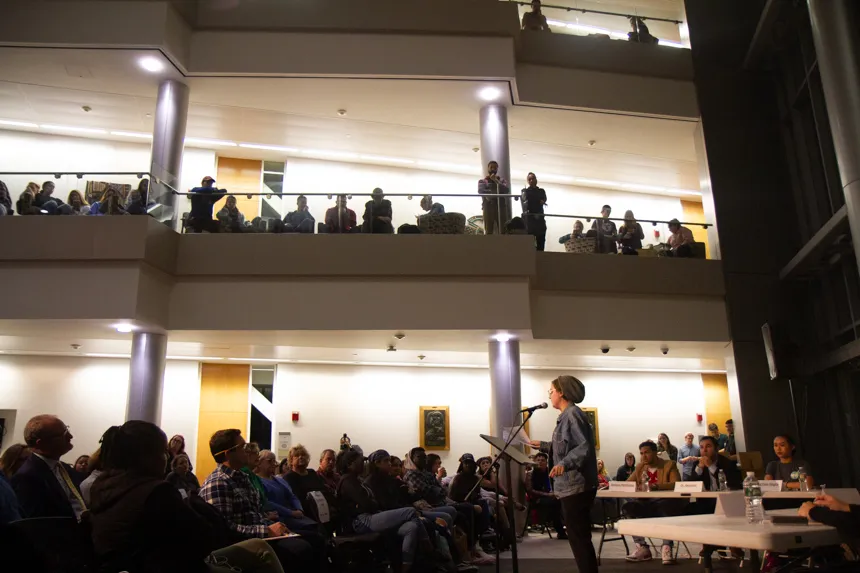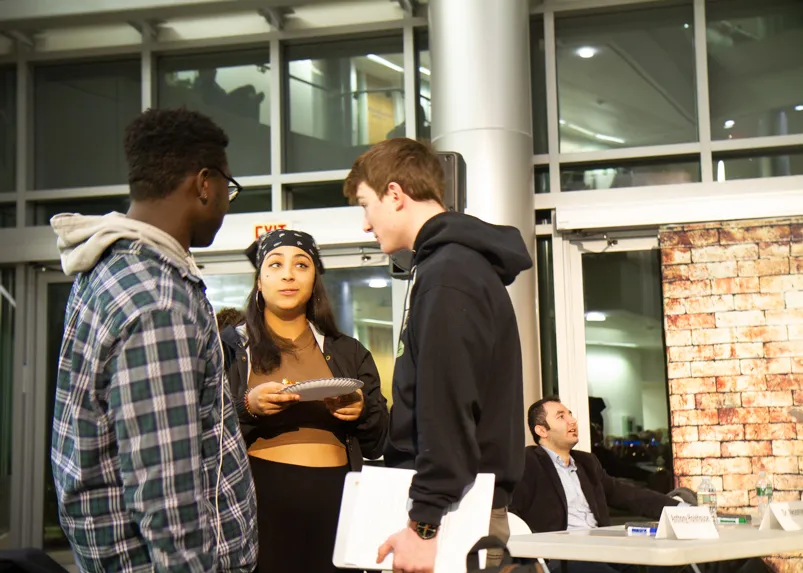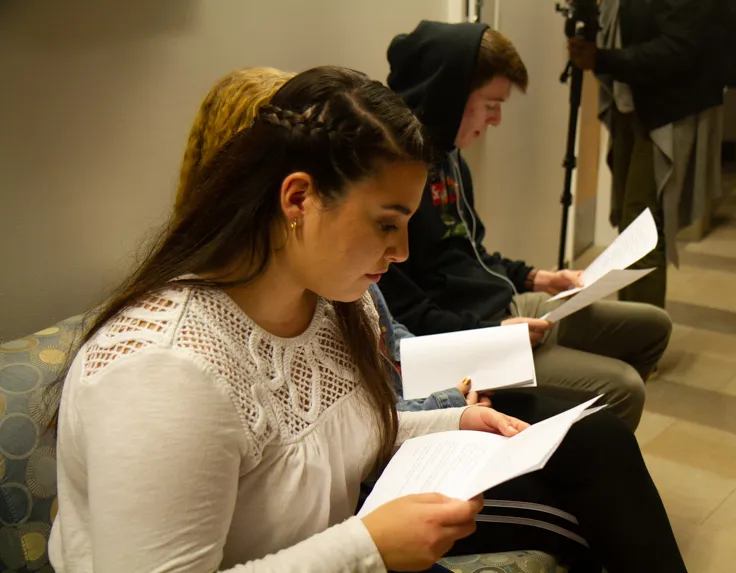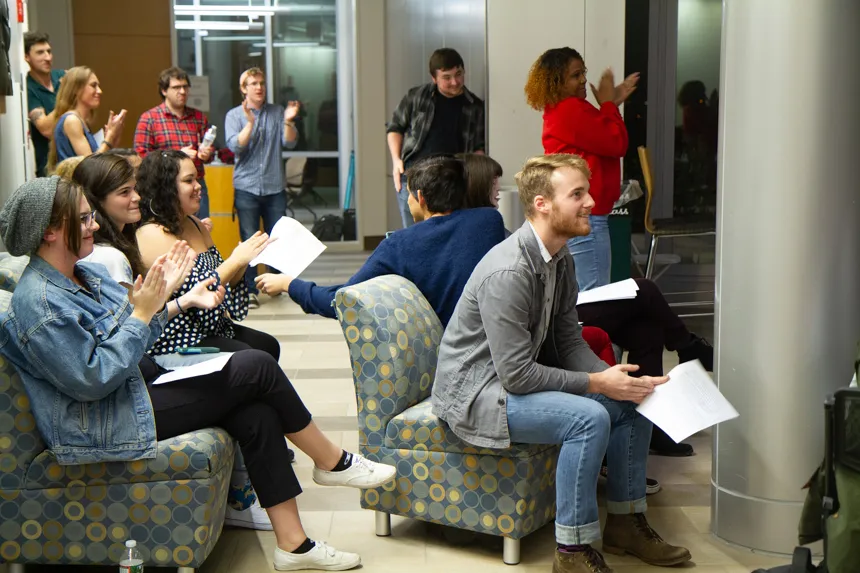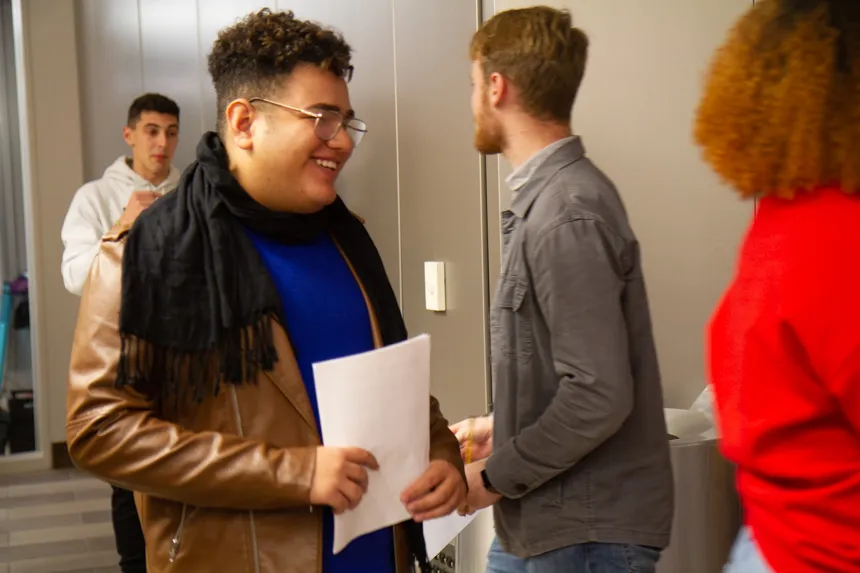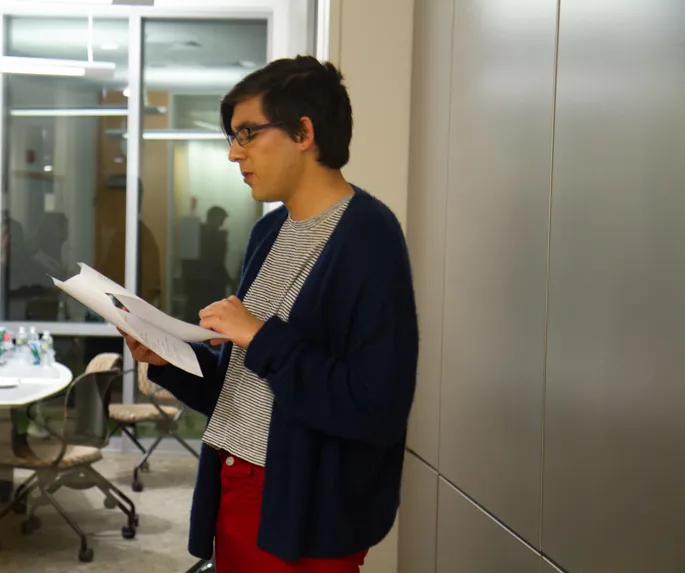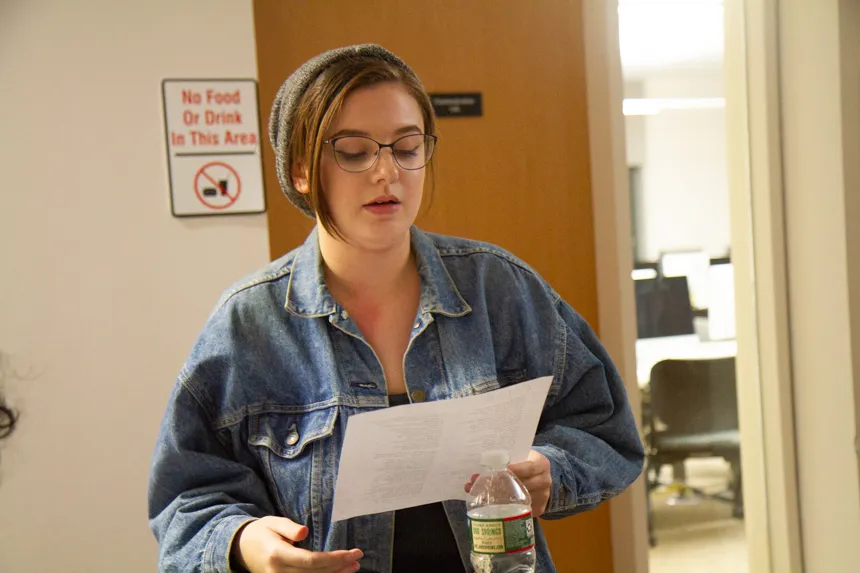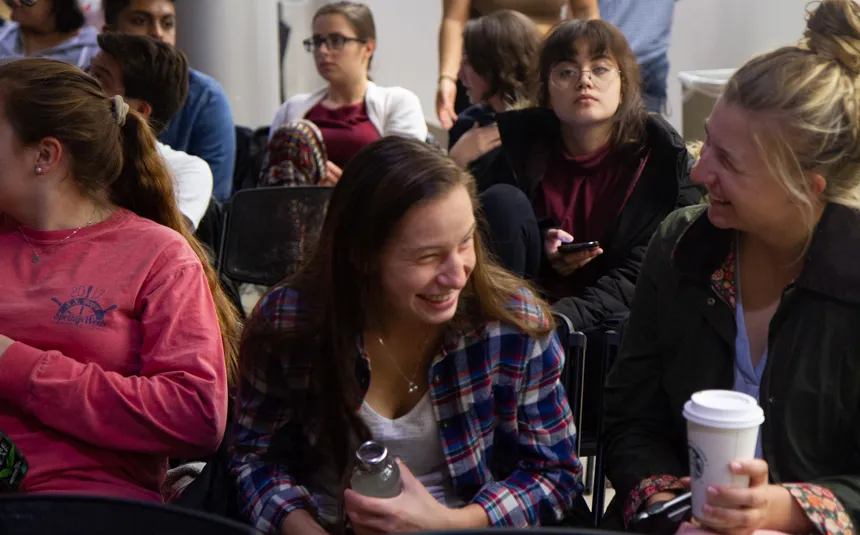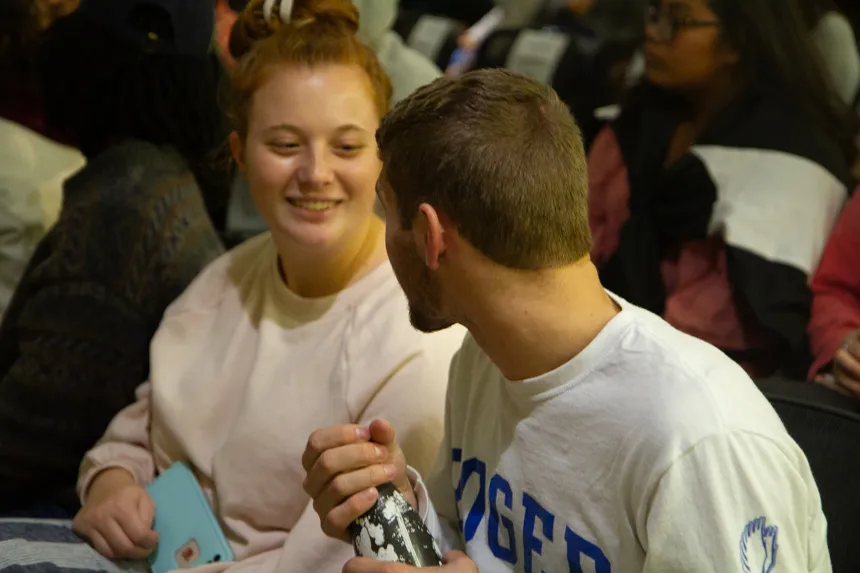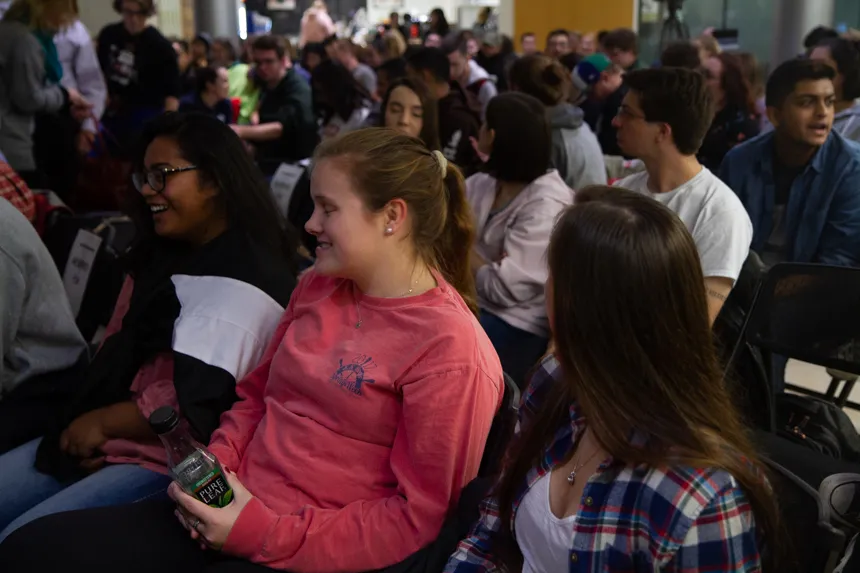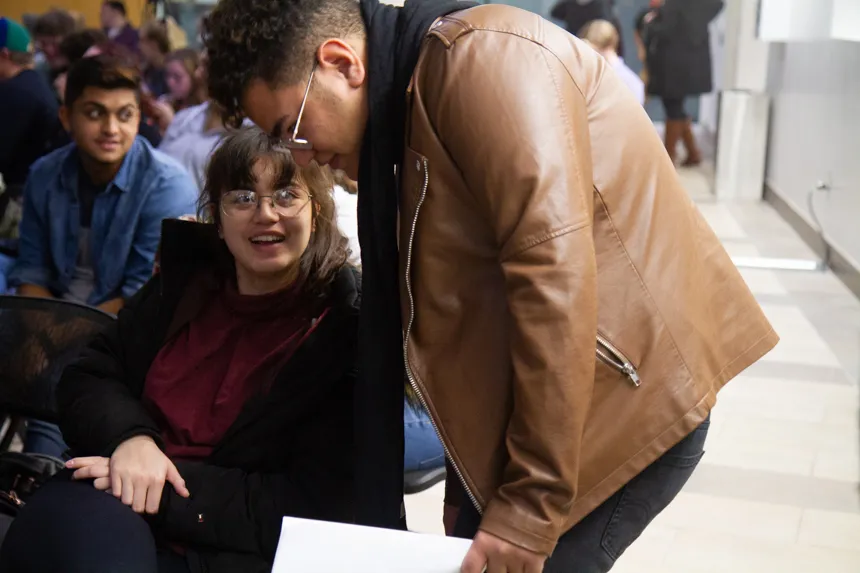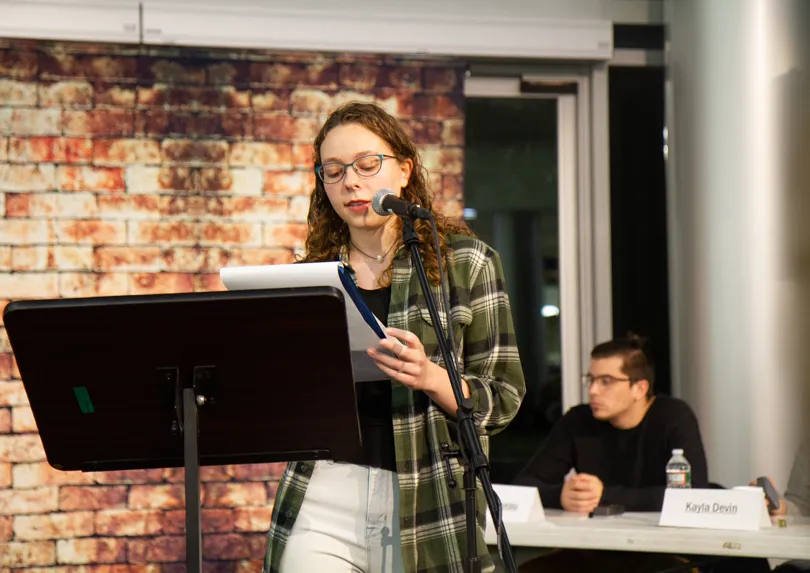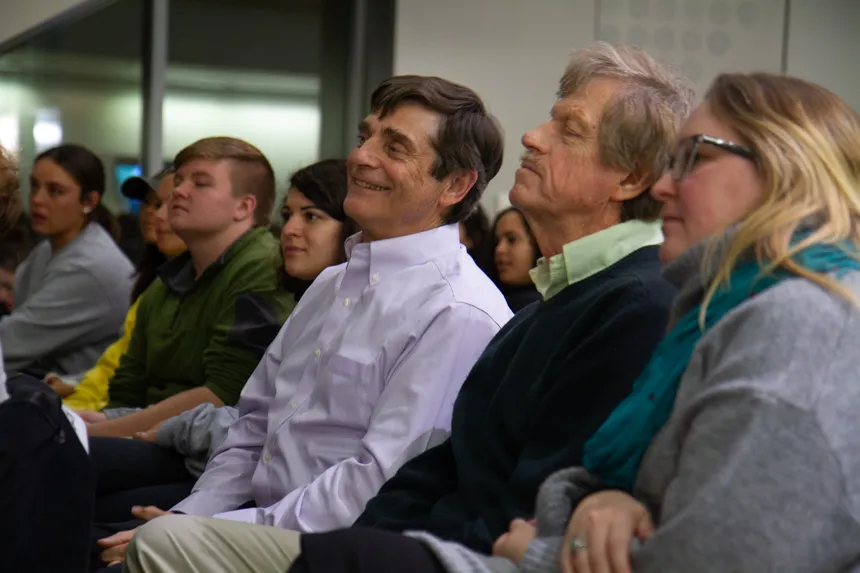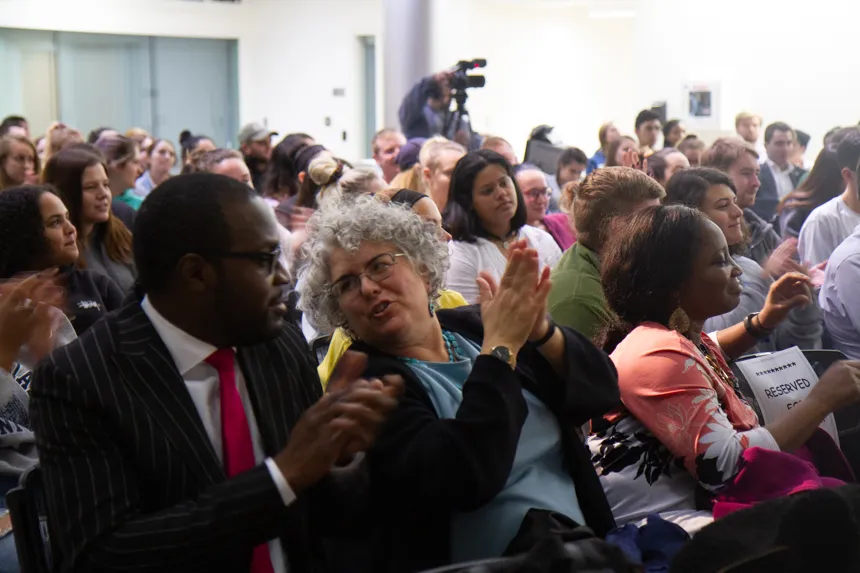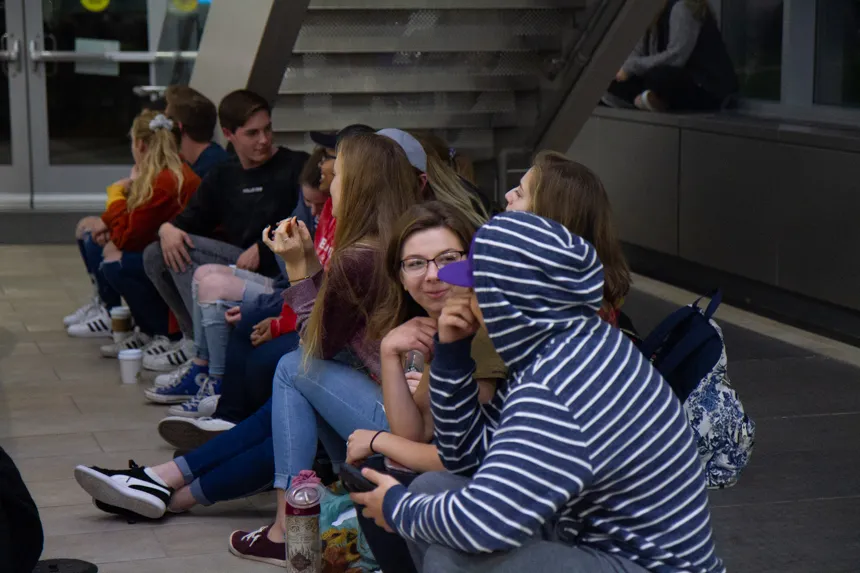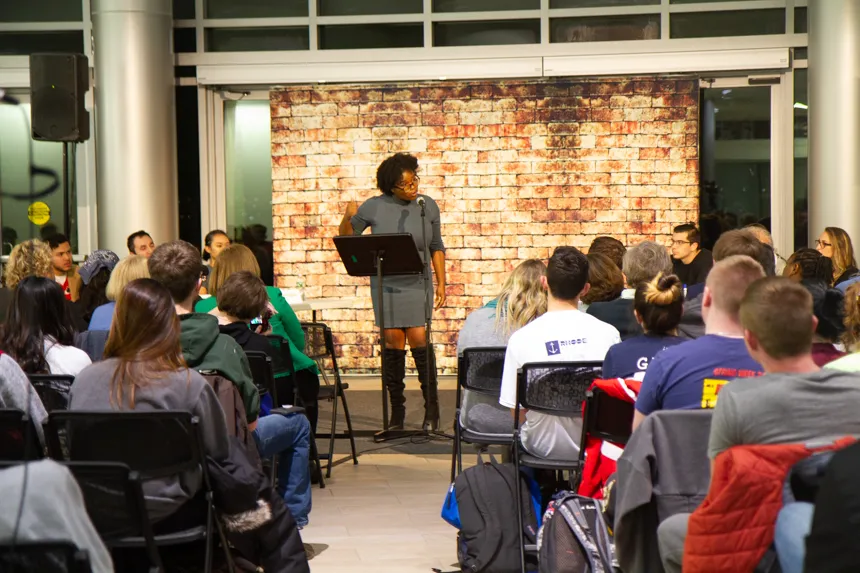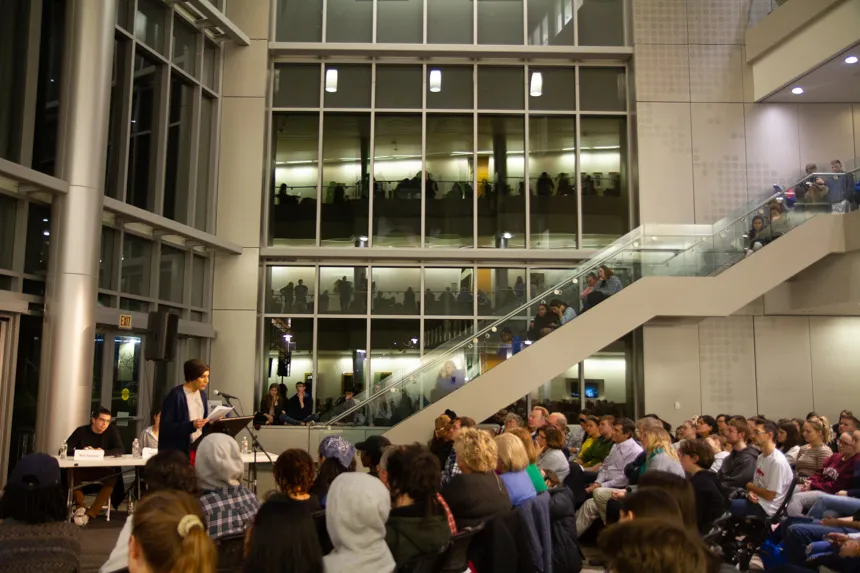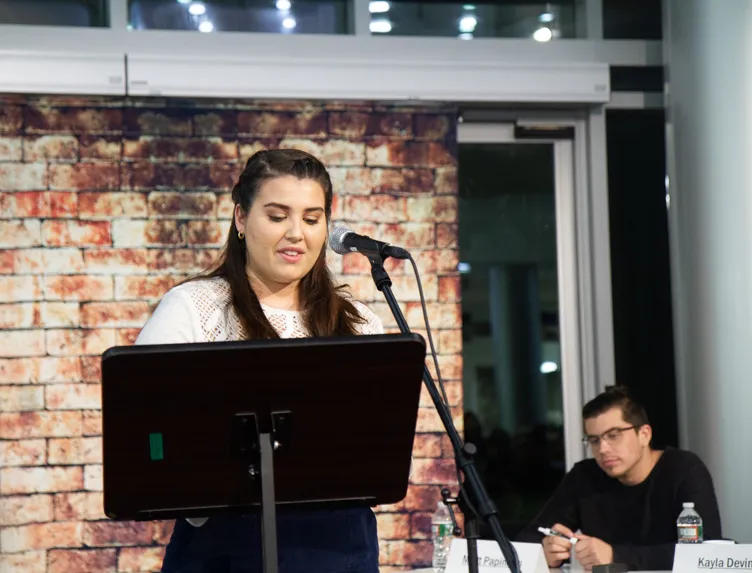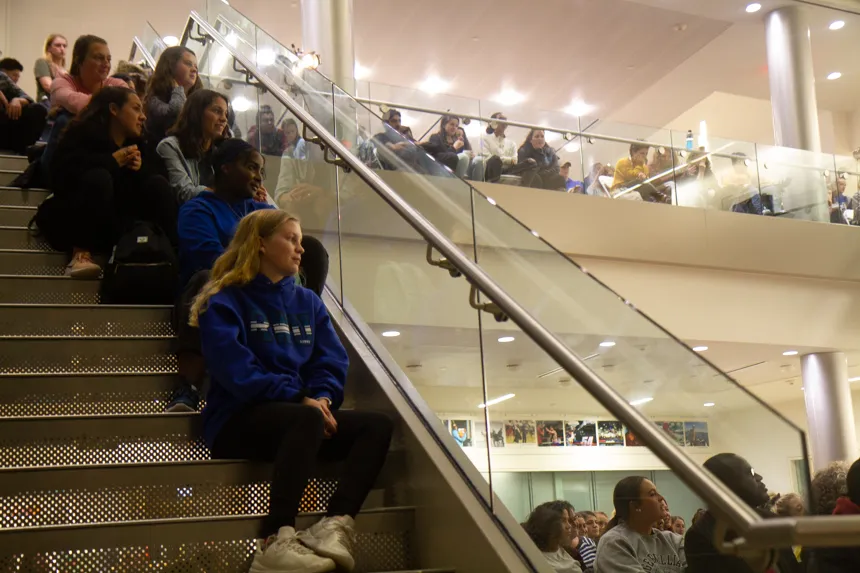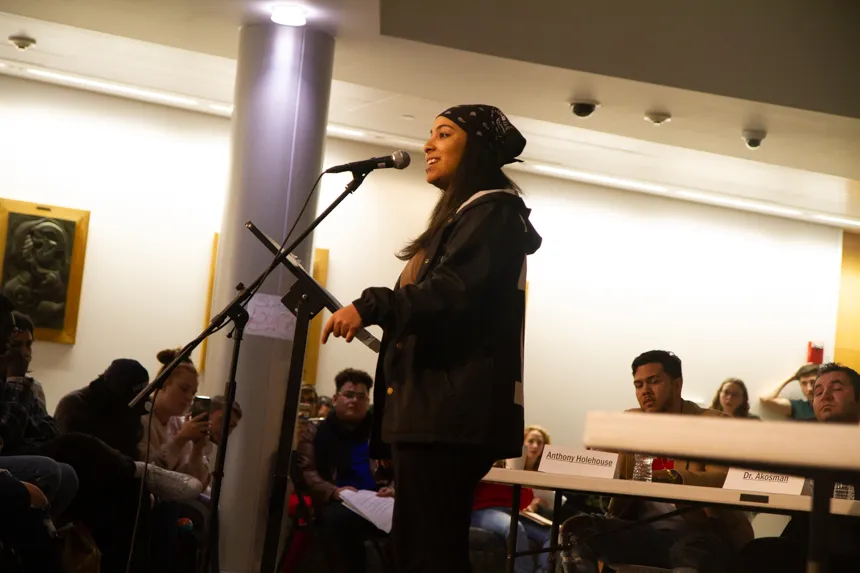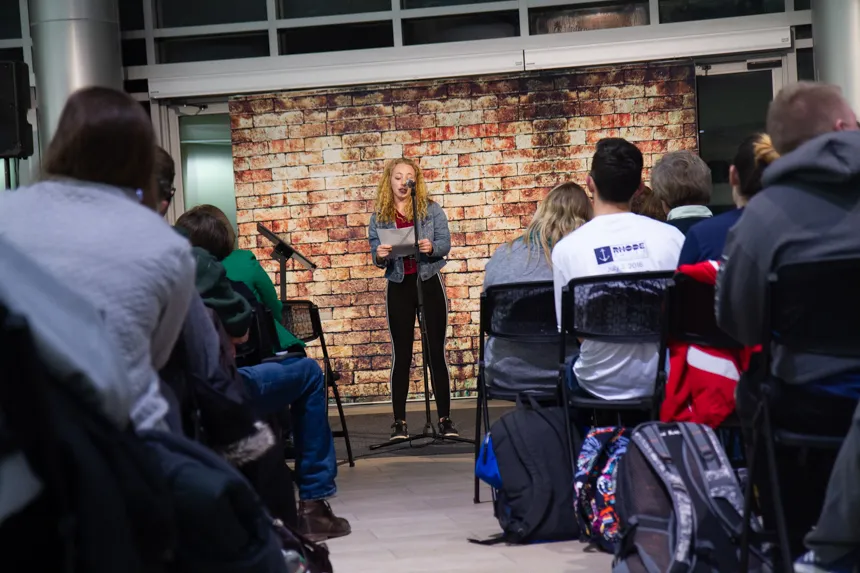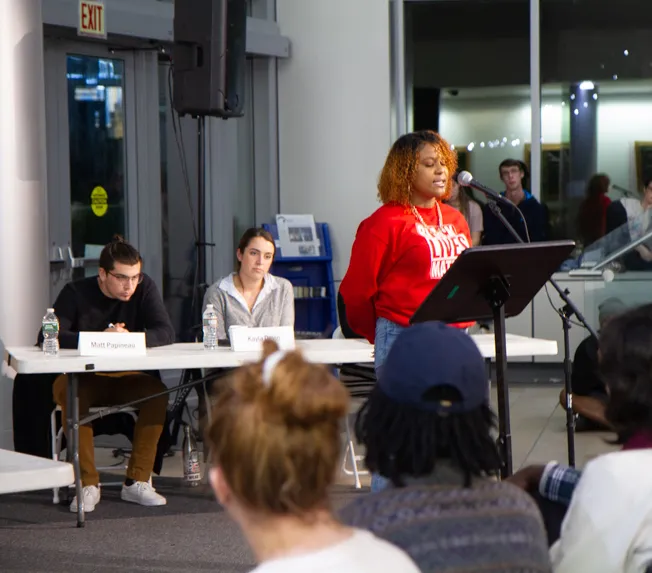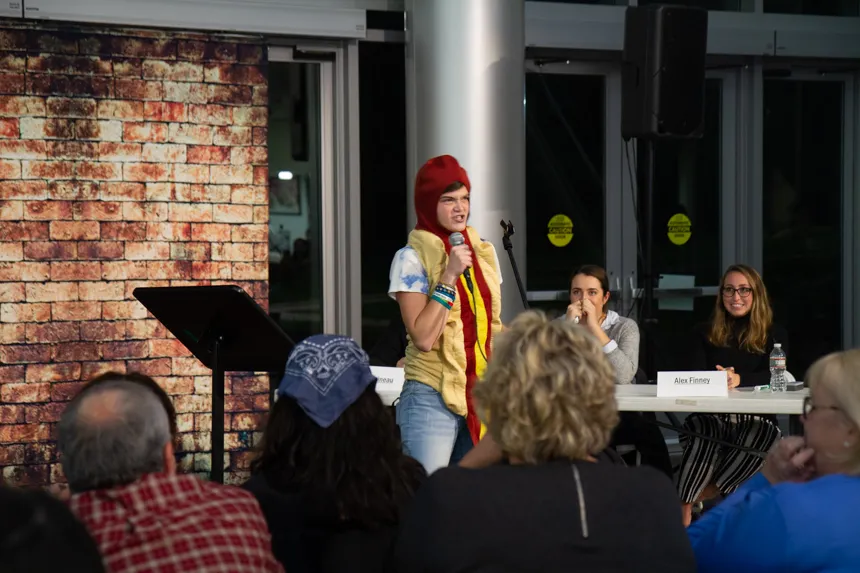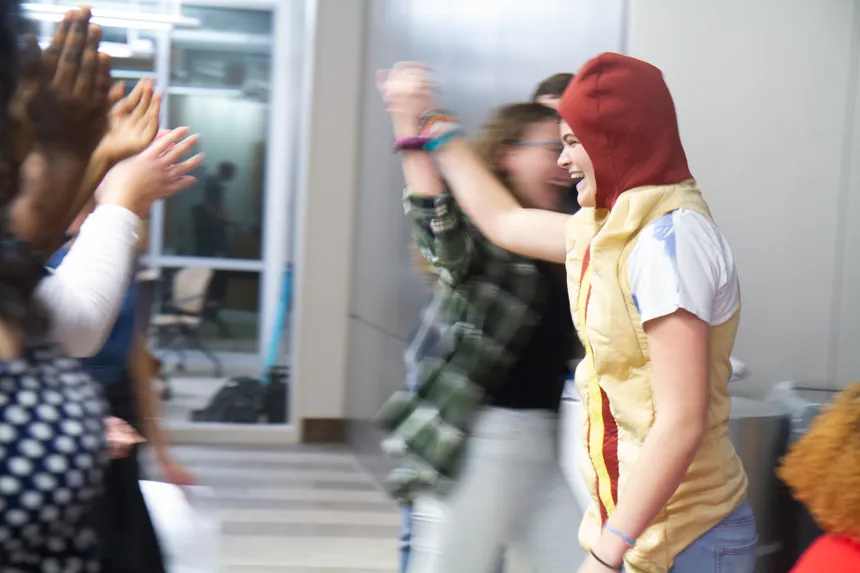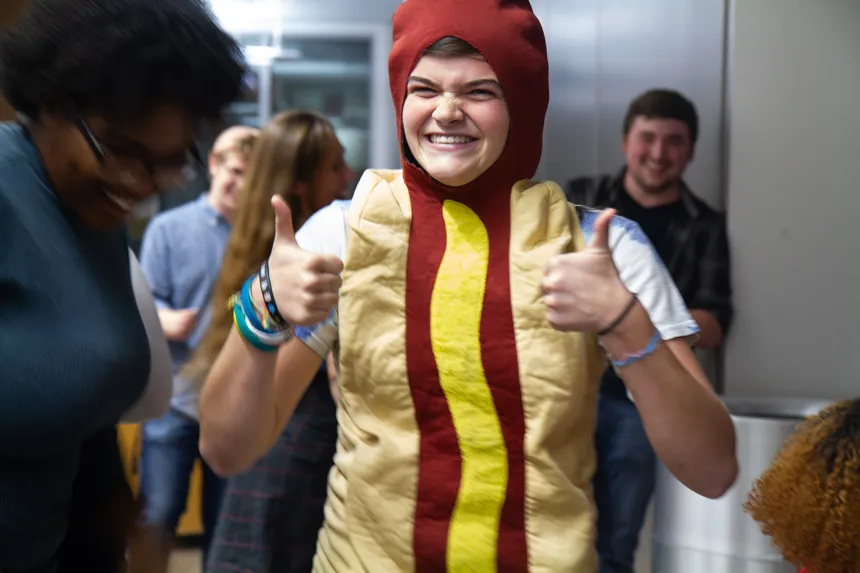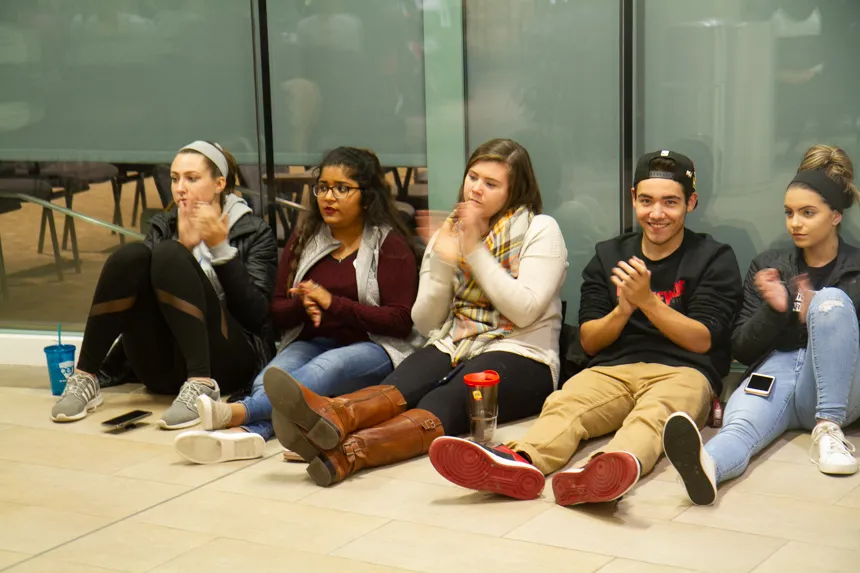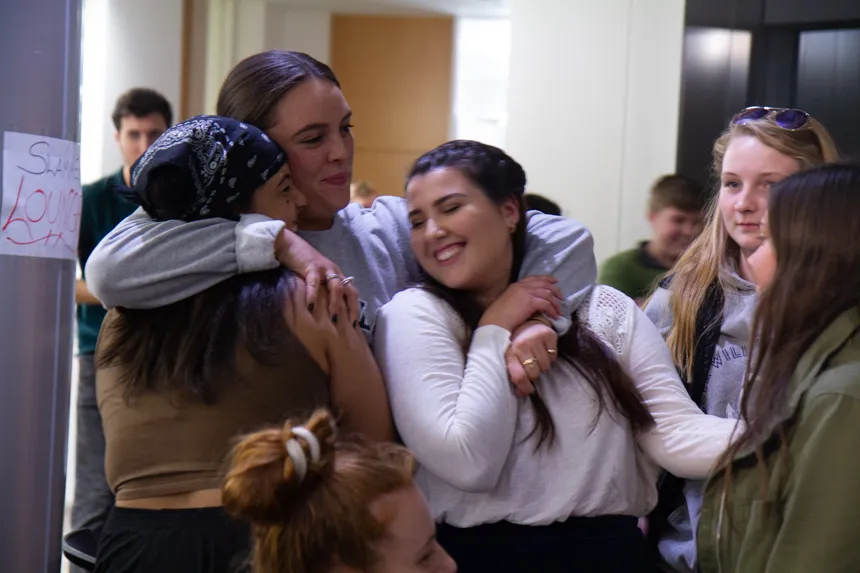RWU Fall 2018 Poetry Slam
Students use poetry as a vehicle for voicing their passions, anger, and ideas for change, in the slam on Thursday, November 8. A new Spring course will offer an opportunity to continue this powerful work.
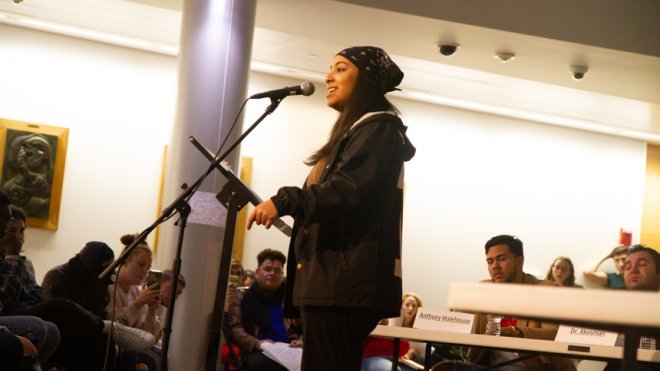
BRISTOL, R.I. – Rows of students perch on windowsills. They sprawl out on the floor. They settle in on the staircase. The GHH Atrium is so packed that incoming audience members must create their own seats.
They won’t, however, stay seated for long. In fact, this year’s host, senior creative writing major Nicole Anderson, tells guests that this is an interactive experience. They welcome the invitation to be active participants. They clap, snap, cheer, and even stand up, if they hear something they like.
“The poetry slam is the single most popular event on the campus — the most highly attended — the most radical — the most uplifting,” says Margaret Case, English Literature and Creative Writing department chair.
So what gets these slam-goers out of their seats? It’s the passion behind the words.
The self-proclaimed slam fam members delve into challenging personal and universal topics in their verses. Lucy Lawlor, the night's winner, performs a poem about the impact of Hurricane Maria. Another addresses transphobia. Another sexual assault. Many incorporate experiences and observations of racism in the United States.
“I like to perform in order to impact people,” says senior legal studies and political science major Melissa Mota. The 2017 winner is performing in her final RWU slam tonight. “I know that my poetry is uncomfortable and unsettling, but at the same time it serves its purpose.”
From the crowd's reactions, it's clear that Mota's words and the words of her fellow performers get them listening and thinking.
The November 8 Slam
“I think when people listen to the poetry slam, maybe they identify with things that they’re going through,” says Karen Bilotti, Associate Director of the Tutoring Center, who helped start the slam at RWU in 2009, and has been working with students to organize it every semester since. “On the other hand, maybe they learn something about someone else.”
This poetic interaction can make a huge impact when it comes to confronting social justice issues. Thankfully, this experience doesn't have to end when the slam ends.
In the Spring, Associate Professor of Writing Renee Soto plans to teach CW 430: Resistance Poetry: Sustainability and Protest. She was inspired by the energy of the slam, and wants to give students of multiple majors the opportunity and resources to write about their passions.
“Students address social justice from the perspectives of personal experience," Soto says. "They also speak from what they witness societally and culturally, and write about our place in the physical world and the earth. The class is trying to bring those two kinds of experiences together. “
